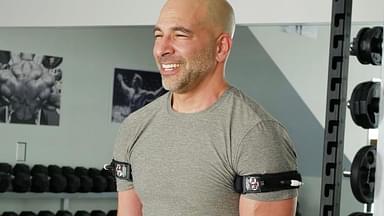A lot of debate on the benefits and downsides of cholesterol has resulted in an information overload for the average consumer. However, Dr. Andrew Huberman and Dr. Peter Attia laid the foundation for dietary cholesterol and comparison with different kinds of fats. In a short resurfaced clip from their original podcast, the duo also came clean about whether or not dietary cholesterol was safe for consumption.
Dr. Huberman began the segment by asking Dr. Attia about the structure of cholesterol. And, what made it different from other nutrients one might consume, such as proteins or carbs? The latter revealed that cholesterol occurred in the form of hydrophobic molecules synthesized by every cell in the human body. Therefore, every human cell has some form of cholesterol present in its structure.
The crucial factor of the cholesterol molecule is that nothing else could match its importance in the human body and its functions. So much so that, any process in the human body acting as a hindrance to cholesterol processing could potentially lead to a big threat to the individual’s health.
Dr. Attia also justified the role of cholesterol in the building, sustaining, and movement of hormones like estrogen, progesterone, testosterone, cortisol, etc. Due to its structure, it helps merge with other cells while providing fluidity to its build.
“Cholesterol makes up the cell membrane of every cell in our body. So…even though a cell is a spherical thing, it has to be fluid…”
However, Dr. Attia revealed a catch when consuming cholesterol in one’s diet. Not all cholesterol consumed in one’s diet makes it to the cell membrane at the end of its processing. The gut transports any form of cholesterol in the body to the cells. Or to the liver, to add to the bile.
Dietary cholesterol is esterified and, has a “big bulky side chain” attached to its chemical structure. This prevents most of it from passing through cell membranes. Instead, it passes along with other bodily wastes.
“Now we probably manage to de-esterify 10-15% of our dietary cholesterol…there are small amounts of dietary cholesterol that do make their way into our circulation, but it represents a small fraction of our total body’s pool of cholesterol.”
Therefore, dietary cholesterol is fine to consume as long as one remembers that moderation is key. Similarly, the kind of fats we consume has also been debated for a long time. Dr. Huberman and endocrinologist Dr. Robert Lustig once discussed how good fats often bore the brunt due to the masses wrongly grouping them under harmful fats.
Dr. Andrew Huberman and Dr. Robert Lustig team up to reveal the benefits of Omega-3 fatty acids
Saturated or trans fats could cause trouble to the body and an individual’s cardiovascular health. However, Omega-3 fatty acids are essential. These fats come from sources like fish and plant seeds. According to Dr. Huberman and Dr. Lustig, these are crucial for the brain and heart to function properly.
What’s interesting, Dr. Lustig pointed out, was just how important these fatty acids were. Unlike other nutrients that get broken down or processed, the body does not utilize Omega-3 fatty acids for energy. Instead, they stay intact till used up by the respective organs. Furthermore, they help develop the brain, keep diseases such as Alzheimer’s at bay, and the heart rate healthier.








